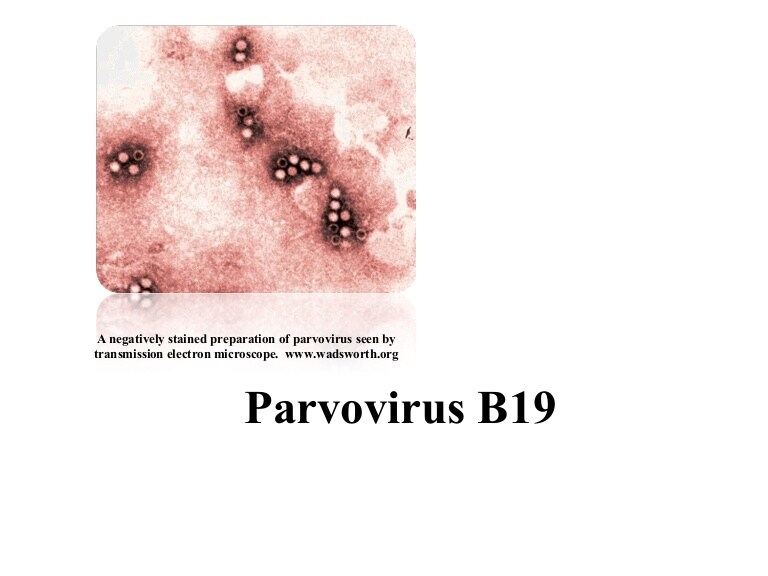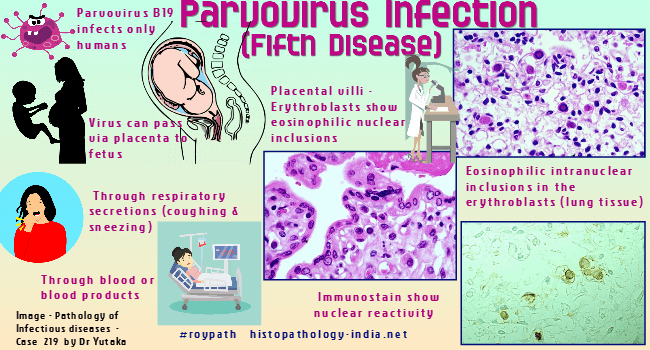Symptoms Of Parvoviral B19 In The Human Body

Parvovirus B19 is a highly infectious viral disease that affects the central nervous system of humans and can cause seizures and coma
Primate parvoviral 1, also known as B19 virus, primate parvovirus B19 or even sometimes parvirus B2, is the first known viral disease in the Parvoviral genus; it usually measures about 23 cm in diameter. It infects the central nervous system and the brain, causing a variety of disorders that affect humans and other primates.
The pathogenic agent parvovirus B19 can enter the respiratory tract of primates through an intermediate host; however, this intermediate is not always identified. The virus multiplies inside the cell until it crosses the membrane. Once inside, it enters the brain, where it begins to replicate within neurons. Although the symptoms of this virus resemble those of other viral diseases, it is very rare for parvovirus B19 symptoms to be recognized in the early stages of infection. In most cases, symptoms only develop after extensive replication.
Parvovirus B19 symptoms include seizures, hallucinations, weakness, depression, anxiety, extreme fatigue, fever, chills, decreased body temperature, weakness, loss of coordination, and in some cases even death. A large number of people in the United States have reported symptoms of parvovirus B19 in the early stages of infection; however, these symptoms do not necessarily indicate the presence of this viral pathogen. Symptoms can appear at any time after the onset of infection, including on the day of exposure to the virus, in the early stages of infection or during the incubation period, or even if fatal.
The incubation period for parvovirus B19 can range from three to four weeks and can last up to six months, depending on the extent of human and primate infection. This is the reason why there is a need for rapid diagnosis and treatment of parvovirus B19. Some signs and symptoms associated with infection include fever, headache, muscle pain, vomiting, diarrhea, vomiting, abdominal and upper abdominal pain, jaundice (yellowing of the skin, eyes, and lips), cramps, lethargy, etc. nausea and vomiting, as well as fever or swollen lymph nodes in the mouth.

Because this disease affects the nervous system and the brain, this virus can affect a variety of animals; therefore, a wide range of tests are performed to identify the disease in these animals. There are various tests that include PCR (polymerase chain reaction) and enzyme immunoassay (EIA) testing. PCR testing can determine if a patient has antibodies against the parvovirus B19 virus and can be done through the administration of an antigen-specific antibody.
When you suspect that you have parvovirus B19 in your pet, it is important to isolate the virus from your pet immediately in order to prevent further spread of the virus to other members of the species. If you believe that you have acquired parvovirus B19 from another pet, you should immediately isolate the virus from your pet and then report it to your veterinarian to avoid spreading the infection to other animals.
Parvoviral B19 is not as easily identified in other primates such as macaques or gorillas because the virus replicates too slowly to be transmitted to them. However, you can still perform PCR testing for parvovirus B19 in these animals in order to confirm the presence of the virus. You will have to do this after taking blood samples from your animal, especially if you have acquired the disease from another animal.
Primate parvovirus B19 is a very contagious virus and most importantly, it is very difficult to diagnose or to treat. You can prevent the spread of the disease to other animals by proper handling of your animal or by isolating the virus in its early stages. You should contact your veterinarian if you notice any of the above symptoms in your pet or suspect you have contracted the disease.